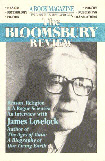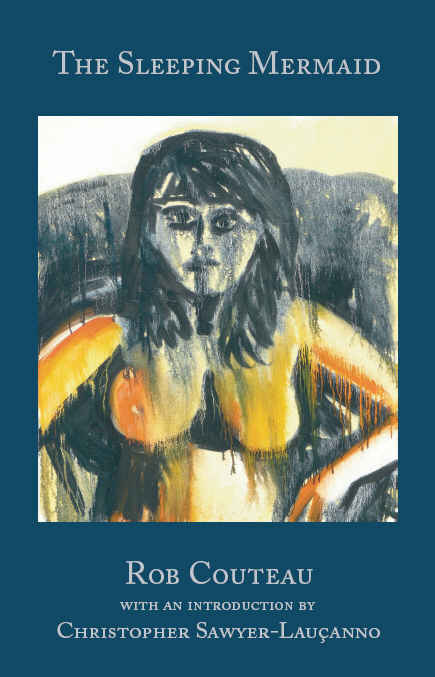|
The Betrayal of the Self. Fear of Autonomy in Men and Women, by Arno Gruen, trans. Hunter and Hildegarde Hannum. (New York: Grove Press, 1988.) Book review by Rob Couteau
|
Published in: The Bloomsbury Review, March / April 1989 (CO: Denver) |
|
|
||
|
Arno Gruen's thesis is that autonomy, which he defines as "that state of integration in which one lives in full harmony with one's feelings and needs," is often in direct conflict with the needs of society and with the collective rules that govern adjustment and the attainment of success. Indeed, our cultural history is largely composed of a "suppression of these feelings and the needs they awaken." The exclusion of such integral emotions leads to violence against the authentic self. As Gaetano Benedetti warns in his preface, "the roots of evil, of negativity, of psychopathology" may be traced, in part, to this blocking of one's essential nature. According to Gruen, abstraction is one of the most destructive psychic forces and often leads to fragmentation of the personality. We "glorify abstract thought-at the expense of passion, enthusiasm, and openness," thereby avoiding a painful encounter with oneself. The participation of science in abstraction's usurpation of core human values has only furthered the "split between intelligence and feeling" and led to a blind worship of rationalism. This, in turn, threatens the preservation of authenticity. Ironically, those who work hardest to maintain psychic authenticity are often "labeled as maladjusted and as failures." Among the so-called maladjusted are the prolific writer Henry Miller and the renowned mystic / philosopher Meister Eckhart, as well as many other notable artists and philosophers whom the author quotes at length. Gruen provides an alternative to what often reads as an anatomy of the terrors one encounters when turning within and facing the secret self. Although we may "develop a fear of fear itself," we need to:
A shift in mental focus away from an inflated, omnipotent ego and toward recognition of the significant "other" (through an experience of rapport, empathy, and open-mindedness) is a theme that runs throughout this work. Certain specialists (as well as general readers) will view Gruen's reinterpretation of Oedipus as being rather provocative. He believes "Our betrayal of what we might have been, which lays the foundation of our destructive tendencies in general, is determined by our relationship with our mother." Yet he rejects what he calls the Oedipal "myth," arguing: "it is neither love nor sexuality … that makes a little boy in the Oedipal stage want to possess his mother. Rather, this is brought about by her often unconscious rejection of his authentic self." Thus, the child is motivated either to "serve her-or to dominate her." All this, he adds, "is not to blame her, for in this regard she serves only as a link to the father and to society, where the self is predicated upon power as the sole worthwhile reality." Gruen is to be lauded for his sincere promulgation of feeling and of psychic authenticity (particularly in an age when psychology has had less to do with the study of the soul than with the obsessive, soulless accounting of extroverted patterns of behavior). Yet there are dangers in this approach, which rings of the literalness and one-sidedness that one often observes in a therapist's identification with the victim. For instance, it's necessary to separate the personal, literal mother from the "introjected" mother and from the "idealized" (or archetypal) mother. The need to establish a system of internal nurturing-of assuming the role of a mother to one's self-and the need to recognize and integrate the mother complex represent psychic realities that are not explored here. The naive or general reader is left only with a personal notion of "mother" and of "society" while, instead, a discussion of the mother complex and of the psychic determinants of society are necessary if the authentic self is to be realized. An honest approach to one's feelings involves an experience of nonrational phenomena, and if one is to "rescue" such emotions from psychiatric orthodoxy (as Gruen seems to be doing), then that rescue must entail an archetypal approach, as well. Instead, the author relies on a "logical" treatment that defends our need for self-expression through a method that is itself destructive because of its concreteness and literalism: its assigning of every problem to an outer causality located in society. But what is society? What is its psychic root? What do we project upon it? Statements such as "there are societies, such as the African Ituri … or the Yequana in the Venezuelan jungle, where men are whole human beings. But in our society they are not" explain nothing and are at the very least, questionable. The "noble savage" haunts this argument, as does an anything-goes "feminism" that charges all men as being guilty of numerous faults and that hails all women as being in possession of a multiplicity of heroic, endearing traits. Tied to the Oedipal drama, Gruen tells us, "is the male conception of possession of power that comes into play."
It's easy to grow tired of such generalizations about men and women, mothers and fathers, and individuals and societies, whether they appear in political discourse, in popular psychology, or in supercilious dinner table conversations. "Men are deeply tormented by doubts about their superiority," and "women who are true to themselves-that is, who are in touch with their own authentic life-forces-are never in favor of war." Therefore, what begins as a refreshing call to inner truth unravels in a welter of simplistic generalizations. Had Gruen followed his own stated philosophy of uncovering a voice that is unique to the self-the creative spirit residing at core of the psyche-then his goal of propelling the reader toward a genuine experience of inner authenticity would have been more convincingly accomplished. Thus, Betrayal of the Self is a summons to the creative but surely not an example of it. |
||
|
This essay is featured in: |
||
Updated: 26 August 2011 | All text Copyright © 2011 | Rob Couteau | key words: Betrayal of the Self Fear of Autonomy in Men and Women by Arno Gruen translated by Hunter and Hildegarde Hannum Oedipal stage love psyche archetypal literature book reviews of novels and psychology literary by Rob Couteau expatriate writers in Paris literature |


